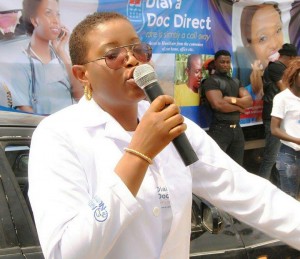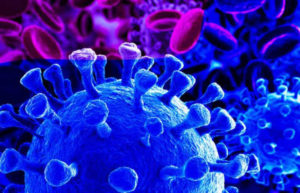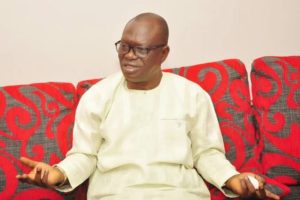DIAL-A-DOC-DIRECT; THE ROLE OF TELE-HEALTH IN ATTAINING UNIVERSAL HEALTH COVERAGE
By Our Correspondent
A novel health care delivery service that links telecommunication technology to clinical health care has been introduced in Warri.
Designed to put health care delivery at the finger tips of patients, the tele-clinical care project, as an innovative approach to provision of clinical care will expand the access of the population to basic health care and benefit hundreds of thousands of people in the Warri Metropolis.
The health care project targets the reduction of health care cost overhead and improve public health outcomes, by leveraging on the telecommunication technology as Nigeria moves closer to achieving a universal health care coverage.
To drum awareness for the scheme, its visioner, Dr. Omas Ubiame organized a road show and town hall meetings, question and answer sessions, free medical consultations and treatment of common diseases in many the public places which the team visited within the Uwvie and Warri metropolis.
The team stopped by at Ugborikoko market, Robson plaza, Okere market, Effurun motor park, Effurun spare part market, Effurun market and the Uvwie town hall.
Dr. Omas Ubiame, a Kings’ College London trained public health doctor who is championing the project, told people at various gatherings that they could now use their phones to call a doctor from the convenience of their homes, offices, shops or market stalls.
Going by the vision of the initiative, doctors will consult and plan a pathway of care with patients who call in, using the same expertise as if they were in a traditional clinic setting.
She said, they will thereafter, prescribe the required course of treatment, requesting appropriate laboratory tests and referring patients as need be, all through telephone calls, text messages, instant messaging systems.
Hear her, ‘Nigeria has a huge and growing population of over 170million people with close to 150millions active mobile phone lines as at June 2014, yet less than 35% of her people have access to basic health care.’
Dr. Ubiame added that for various reasons such as like medical advancement and globalization the number of persons delivering care are reducing at an alarming rate despite the increasing number of persons requiring care.
According to her, the doctor-patient ratio in Nigeria today is about one doctor to seven thousand patients and this is having a serious effect on provision and delivery of care in terms of quality and quantity.
She said, ‘we can not continue to act as if we are not aware of these problems and the risks involved, we have to prepare for the future as it will be grossly ignorant and out rightly irresponsible not to do so going by the prevailing circumstances’, the doctor noted.
According to her, doctors have been consulting with patients over the phone for ages, but this systematic coordinated approach is relatively new to Warri and its environs.
She cited various countries where the mobile phone is being used for Medicare in one form or the other around the world to include; the United States, United Kingdom, Canada, in Africa – South Africa, Kenya, Mali and Uganda among others.
Dr. Omas Ubiame explained that the UK version of it known as ‘NHS Direct’ has been at the heart of their National Health Insurance Scheme for a long time.
She dismissed fears that the scheme will erode traditional hospital visits, ‘we are working in partnership with the hospitals.’ Continuing she said, ‘What we are introducing is not meant to replace but support our existing health care setting, as face-to-face patient-doctor encounter still remains the most important means of health care delivery, but it is also fast becoming the most expensive to deploy and seemingly inadequate to sustain, hence complete reliance on face-to-face doctor-patient encounter especially as it relates to universal health coverage, is neither pragmatic nor feasible’.
She added that, ‘The backbone for this project is our ability to screen and refer to the hospitals only those patients whose physical presence in a hospital is implicit for the care they require’. We are also working with laboratories and pharmacies to ensure that our patients’ experience is holistic and as close as possible to the type of care they would be provided in a traditional clinic setting, Dr. Ubiame stated.
But to get the ears of a doctor under the scheme, members of the public need to purchase a prepaid rechargeable card starting with as little as five hundred naira which gives them twenty minutes talk air time. Dr. Ubiame explained that the whole idea is to give to a persons’ health the same importance a debit card gives to a persons’ finances. The initiative is meant to help the patient reduce the opportunity cost in seeking health care, saving resources such as time, money, and emotions, but more importantly, giving particularly, those in rural areas, access to basic health care by using their phones.
A demonstration of how the process works was carried out to the satisfaction of those who were present at the show.
Describing how it works, Dr. Ubiame said, ‘a doctor is just at your fingertips, simply a dial away’. We are on a pilot test now but we want people to know that they can reach a doctor as conveniently, as affordably, as secure and as efficiently as possible. With dial-a-doc- direct, everyone is a winner,’ she concluded.




